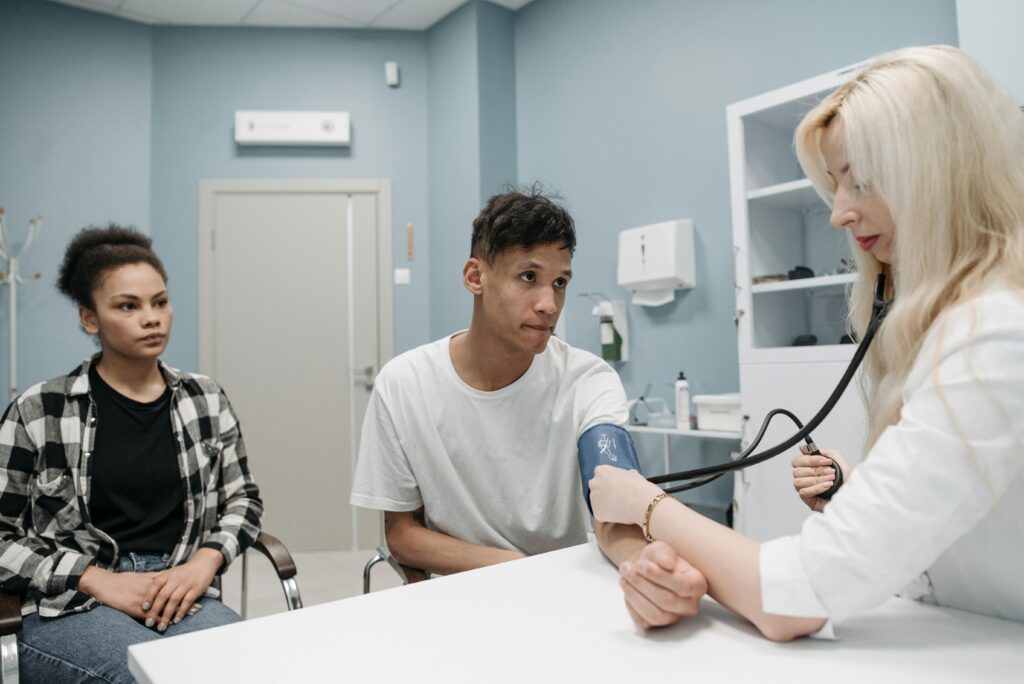Dear friends,
When we think about health-threatening surges, we typically think of infectious disease. Yet we are also aware of another kind of surge that will undoubtedly fuel preventable COVID-19 infections, sickness and death: eviction.
Even with the welcome news that the moratorium has been extended to October 3rd, the expiration of the CDC’s national eviction moratorium placed truths we’ve long known into even starker relief. One: that stable affordable housing is a health equity issue. And two: that the legal rights, policies, and services that protect that housing are essential. We see now more clearly than ever: Housing is health.
So what should we do about it?
I’m joined in writing today by HealthBegins Senior Fellow Ellen Lawton, a national leader and catalyst of the growing medical-legal partnership movement. Ellen is leading HealthBegins’ new work with Kaiser Permanente and the National Center on Medical-Legal Partnership (which she co-founded and led) to help hospitals in five Kaiser Permanente regions launch such partnerships.
Together, Ellen and I know that no patient can stick to a treatment plan when they’re struggling just to stay housed, no senior can socially distance from the delta variant while trying to stay safe without a home, and no child can focus on education when they’re bouncing from couch to couch.
We also know that America’s housing crisis long predates the pandemic. Federal officials have now delayed catastrophe with a limited temporary moratorium, which is important. But no such strategy will change the fundamental sickness of a system that is inequitable by design, in which the people and communities we serve remain at risk.
So it’s not enough to just identify health inequities among our patients—we have to act to remedy them. Here are five actions that all of us in health care can start to take on housing now.
- Press state and local governments to increase eviction protections and quickly distribute the billions of dollars in federal rent-relief funds to renters and landlords that they’re delivering far too slowly.
- Provide resources to your patients, clients, and renting neighbors to inform them about their housing rights and steps to protect themselves, such as using this free tool to submit letters to their landlords and help build defense against unjust eviction. (Medical-legal partnerships also can help health systems identify the right information to provide patients.)
- Advocate that your hospital or clinic immediately invest more in partnerships with legal aid organizations, as our collaborators at Kaiser Permanente are doing, to increase access to justice and legal advice for patients at risk of eviction. The tried-and-tested medical-legal partnership approach is now in use in 49 states and growing.
- Educate yourself about the roots of and solutions to housing inequity. Check out this upcoming webinar from our friends at ChangeLab Solutions and our recorded HealthBegins webinar on redlining and the role of health systems. Plus the reading links below (we’ve devoted the news links at the bottom of this newsletter entirely to the issue of housing).
- In late September, be prepared to call your representatives in Washington and urge them to extend the eviction moratorium again if it’s clear that rent-relief dollars have not been received and eviction will lead to a public health crisis.
As ever, we know that moving upstream is not an idea, it’s a call to action. And nothing makes the need to address the social and structural drivers of health equity clearer these days than the dual eviction and public health crises facing this country. We’re grateful to see our growing community of Upstreamists rising to the call. We hope you can join us.
Best,


Rishi Manchanda, MD, MPH. Ellen Lawton, JD
Featured content
Providing Health Equity for Immigrants in a Time of Crisis
This moment presents an opportunity for healthcare leaders to harness the national attention focused on immigrant care to build investments, policies, and protections to improve care for these communities long-term.
HealthBegins Brief: Addressing Climate Health Inequities With The Community Health Needs Assessment
This HealthBegins Policy and Practice Brief invites every healthcare organization to immediately begin addressing the impact of climate change on health at the community level and with community participation.
Immigration Enforcement in Healthcare Settings: How to Prepare and Respond
Many of our healthcare partners are asking how they should prepare for potential ICE encounters on their premises and respond in the interim to concerns among patients and staff. These questions, answers, and resources provide some guidance.



